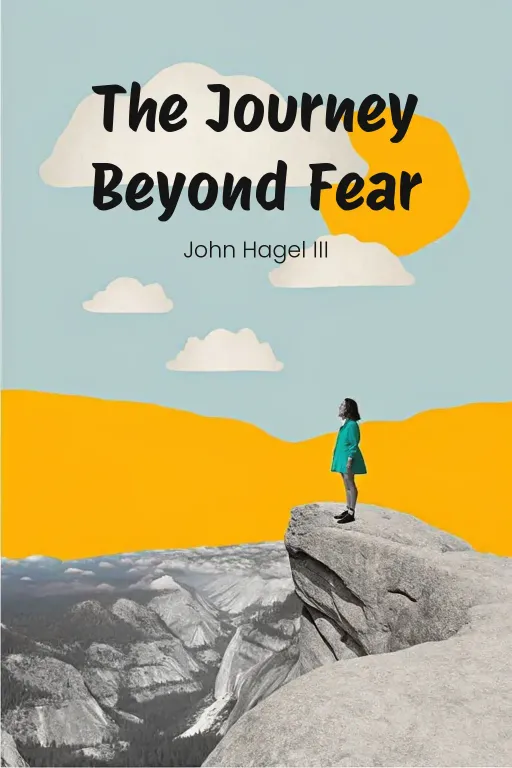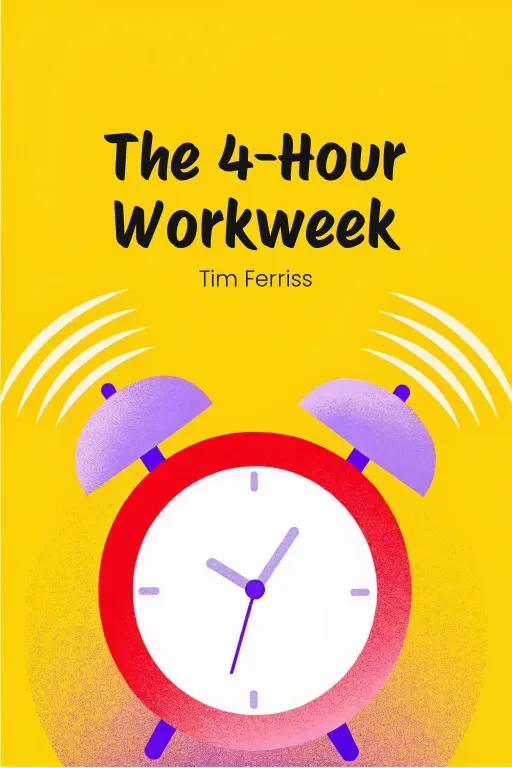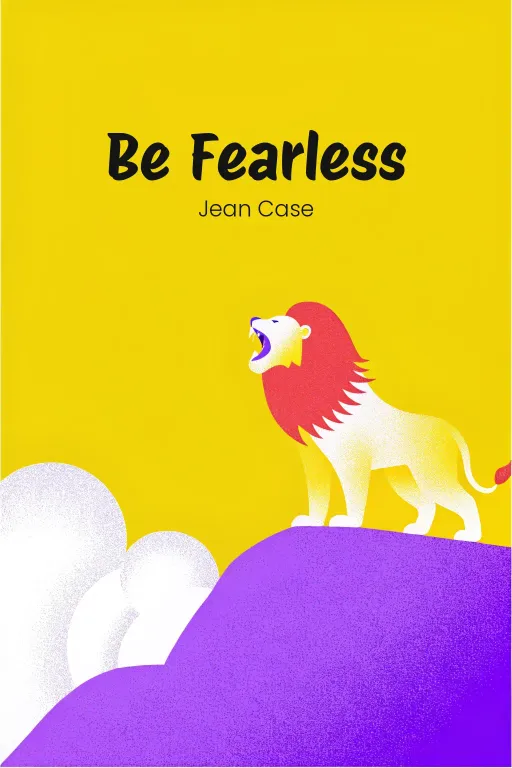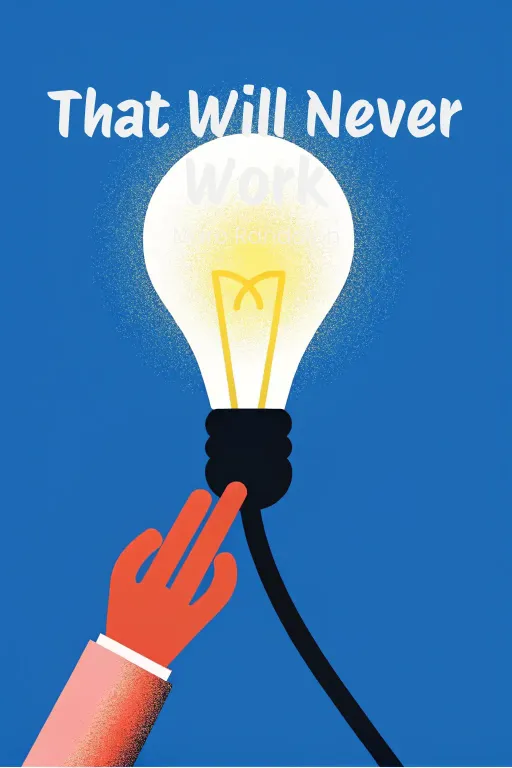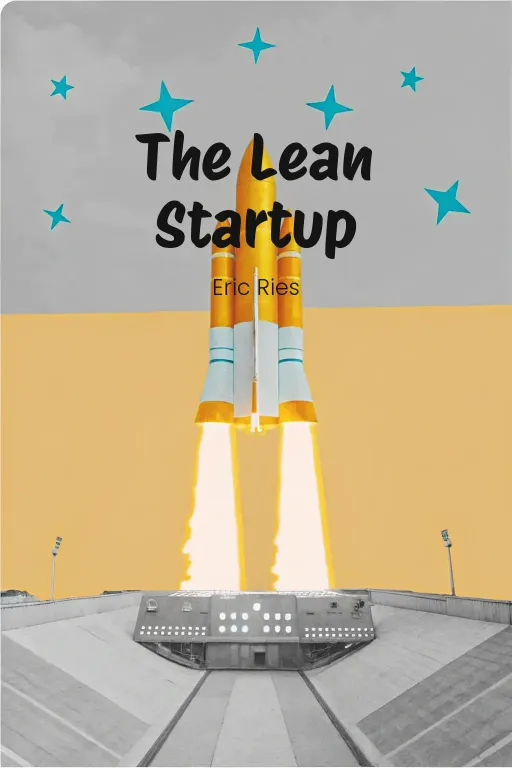
Fearless Action: Unlock Your Ripple Effect
Podcast by Beta You with Alex and Michelle
5 Principles for a Life of Breakthroughs and Purpose
Fearless Action: Unlock Your Ripple Effect
Part 1
Alex: Hey everyone, welcome back to the show! Ever feel like you're just...stuck? Like fear's got you pinned down, and that big next step feels impossible? Well, what if fear wasn't a roadblock, but actually the thing that pushes you forward? Michelle: Okay, Alex, that's a big claim. I mean, fear feels like a ten-ton weight sometimes. How do you turn that into… I don't know, a jetpack instead of an anchor? Alex: Exactly! And that's what we're diving into today, inspired by Jean Case's book, Be Fearless: 5 Principles for a Life of Breakthroughs and Purpose. It's packed with inspiring stories from history and modern leaders, plus really practical advice on how to turn fear into fuel for real change. Michelle: Fuel, huh? When I hear "be fearless," I picture, you know, people with a trust fund to fall back on. Is this book actually useful for those of us who aren’t exactly rolling in dough? Alex: Definitely. Case emphasizes that being "fearless" isn't about privilege. It's about changing how you see things and then taking action. The principles she lays out are pretty universal: like making bold investments in yourself, challenging the assumptions that are holding you back, and building strong partnerships. Michelle: Okay, but how do we go beyond just feeling inspired? I mean, is this about climbing Everest, or can it actually help when you're just, you know, trying to get through the day? Alex: Both! And here’s how we're going to break it down. First, we'll talk about mindset, about seeing fear as a stepping stone. Then, we’ll get into those five principles and how they can help you build momentum. And finally, we’ll look at how taking fearless action can have this ripple effect, creating change beyond just your own life. Michelle: Alright, a blueprint for stepping outside your comfort zone with a touch of grand vision. Intriguing. Let's see if we can build this bridge to legacy.
Embracing Fearlessness
Part 2
Alex: Okay, let's jump into the real meaning of fearlessness, according to Jean Case. It's not about “lacking” fear, that's the common mistake everyone makes. It’s actually about having courage, taking action “despite” being afraid. This is super important, because fear itself isn't the bad guy. It’s normal, it's even useful, especially when we're trying something new. Michelle: So, if I'm understanding this correctly, fear is like... a car alarm? It's screaming, "Wrong way! Turn around!" But instead of listening to it, we're supposed to just put the pedal to the metal and hope for the best? Alex: No, not exactly, Michelle. It's more like the alarm is telling us we're heading towards growth, even if it doesn't feel good at the moment. Case argues that fear often points to the most important opportunities. That when you take a brave step despite of your fear, you're more likely to stumble upon unexpected opportunities and breakthroughs, because you’re challenging the way things have always been. Michelle: Okay, yeah, I get it. Fear is a signpost pointing to potential, in theory. But imagine you’re facing something huge, like a career change, pitching a wild idea to your boss, or finally starting that project you've always dreamed of. When that wave of anxiety crashes over you, what do you do “first”? Alex: Well, Case wants us to start by asking ourselves a really simple, but powerful question: “What would I do if I wasn’t afraid?” It forces you to really look at what the fear is holding you back from, and what you really want to achieve. Michelle: Okay, so “What would I do if I weren’t afraid?”... Hmm, I might actually reach out to that person I admire but I'm too intimidated to contact. Or pitch that really crazy idea for a new project. But isn't that still kind of theoretical? Knowing what you “would” do isn’t the same as actually “doing” it. Alex: That's where the next step comes in: breaking it down. Case really pushes this idea of "chunking"—tackling a huge goal by focusing on one tiny, manageable step at a time. Instead of trying to jump ten miles, you just focus on that first, small step. Maybe it’s sending an email, writing one paragraph of a proposal, or just doing a little research. Michelle: Right, like eating an elephant one bite at a time. Though, I guess that assumes you “want” to eat the elephant. What happens when you are so paralyzed by fear, that you can't even take the "small steps"? Alex: Case addresses that really well, with some real stories, like her experience with Outward Bound. Imagine this: she’s standing on top of a telephone pole, way up in the air, just shaking with fear. Every instinct is telling her to go back. But the instructor doesn’t force her to be brave . He just says, “You can try.” It’s like he’s giving her the freedom to move forward, without any guarantees. Michelle: And she actually did it? Balanced across the telephone pole? Alex: She did, bit by bit. And that's key. The act of just moving forward, no matter how small, is what makes fear shrink. By the time she reached the other side, she learned that fear loses its power the moment you start taking any kind of action. And it's not just about telephone poles, Michelle, it's about every challenge in life. Michelle: So, fear shrinks as you confront it. Almost like it feeds on us “not” doing anything? Alex: Exactly! When you do nothing, fear gets bigger and bigger in your mind. Taking action might not make the fear disappear completely, but it changes how you see it. It gives you data, confidence, and momentum you wouldn't have otherwise. Michelle: I have to admit, that's a pretty powerful idea. But what about situations where fear feels impossible to overcome? Like moving to a new city with no money or support. Not everyone has a safety net where they can push through fear. Alex: True, and that's why Case's own life story is so inspiring. Her family wasn't wealthy, her life wasn't glamorous. Her single mom decided to move them from the security of their lives in Normal, Illinois, to Fort Lauderdale, where they didn't know anyone. It wasn't just practical; it was a fearless move. Michelle: And how did Jean deal with that, as a kid? I imagine moving must have been scary at that age. Alex: It was, but her mom's positive outlook and determination turned it into an adventure. Moving forced Case to adapt and become resilient. In her new environment, really important people came into her life, like her sixth-grade teacher, Miss Neal, who gave her the support she needed. This shows that fearlessness isn't just something we have inside, other people can also help us and support us through challenges. Michelle: So, we don’t have to beat fear alone—we can depend on others along the way. That's kind of a relief, actually. Alex: Exactly. And Case's story highlights her resilience just as much as her courage. Fear might not disappear, but if we have optimism, take small steps, and have support, it can't hold us back. Jean Case didn't let fear control her life; she confronted it, and her life got bigger because of it. Michelle: Okay, so to recap, you’re saying three things: see fear as a chance to grow, start small, and find a community. But let’s not forget that there’s a bigger picture here about how fear can stifle innovation, right, Alex? Alex: Totally. Case believes that fearlessness isn’t just good for individuals—it’s important for society as a whole. Big advances in technology, social change, and even space travel only happened because someone faced fear of failure and kept going. Think about President Kennedy’s plan to go to the moon. The risks were huge—failure, financial issues, even disasters. But his fearless vision inspired the whole nation to achieve something incredible. Michelle: So fearlessness spreads. When leaders or individuals push through their fears, their actions inspire others to do the same, and it creates a chain reaction of innovation. Alex: Exactly! Fearlessness transforms our approach to challenges, whether it's on a personal or societal level. And that’s really what this is all about, Michelle. When fear is seen as a chance instead of a problem, we unlock not only personal growth but also the chance for big progress that benefits all of humanity.
Five Principles for Breakthroughs
Part 3
Alex: Building on that mindset, you know, the book really gets practical. It dives into strategies for applying fearlessness in the real world, using Jean Case’s Five Principles for Breakthroughs. These principles? They’re like a roadmap for navigating life’s uncertainties with courage and real focus. What’s so great is that it’s not just theory; it’s actionable. It shows us how to structure fearlessness in, you know, every aspect of life – personal, professional, even societal. Michelle: Structured fearlessness? I like the sound of that already, Alex. It's like a mix of daring and strategy, which, let's be honest, I definitely need. Just telling me to "go be bold" isn't quite enough to light my inner fire. So, what's the deal with these five principles? What are we talking about here? Alex: Basically, they're designed to help us adopt a fearless mindset and turn it into intentional action. It's about making those brave choices that lead to personal growth or, you know, societal innovation. Let's kick off with the first: Making Big Bets. Michelle: Big Bets. Okay, now I'm picturing Vegas. But I'm guessing Case isn’t telling us to gamble it all away on a hunch. Alex: Not quite! Big Bets are about setting bold, transformative goals. Think huge, you know, rather than focusing on small, safe improvements. Instead of just optimizing what's already there, it’s about embracing these ambitious ideas that could totally reshape an industry, a community, or even your own life. Michelle: Okay, I get the "bold" and "ambitious" part, but just how bold are we talking? Got a real-world example to, you know, really illustrate this and paint a clearer picture? Alex: Totally. Think about Twitter. Back in its early days, it wasn’t even Twitter, you know? It started as Odeo, a podcasting company. But then Apple introduced its own podcasting platform, which, you know, basically made Odeo irrelevant. Faced with failure, the team didn’t just tweak things a little, they made a major Big Bet. They scrapped their original concept entirely and put everything into this new, experimental tool for microblogging. Michelle: That thing that became Twitter? Wow. Alex: Exactly. They turned their failing podcast business into a global platform that redefined communication! Of course, it wasn’t a guaranteed win at the time. It was risky, uncertain, and far from a sure thing. But that bold decision tapped into emerging trends like real-time updates and social connectivity. And, well, it paid off big time. Michelle: So, Twitter’s success wasn’t just luck, it was about foresight, risk-taking, and embracing uncertainty, right? Okay, but here’s where I start wondering: how can the rest of us apply something like "making big bets" without having, you know, a ton of capital, cutting-edge tech, or Silicon Valley backing? Alex: That's a super valid point. And that’s why Case stresses the importance of chunking. Basically, breaking your Big Bet down into smaller, manageable steps. Let’s say you have this audacious goal, like launching your own business. The Big Bet itself might feel impossible, but you can start small. Research similar businesses, build a simple prototype, or even just reach out to a few potential mentors. These small actions help build momentum. Michelle: So, instead of thinking, "I need to make millions," I should think, "What's one thing I could do that moves me closer to that today?" That does kind of de-escalate the the pressure cooker, doesn't it? Alex: It totally does. And here’s another layer – Case also talks about confronting the risks of not acting. We often hold back from fear of failure, but have you ever stopped to ask yourself, “What if I don’t take this leap? What will I regret in five, ten, twenty years?" Michelle: Ah, the regret filter. Brutal, but effective. Hard to argue with future-you shaking a fist at present-you for being a chicken. Alright, what’s next? What comes after Big Bets? Alex: That leads us to the second principle: Being Bold and Taking Risks. And you can guess what that's about, stepping out of your comfort zone. Michelle: Comfort zones, that place we all love to stay while binge-watching streaming shows. What’s Case’s argument here? Alex: She argues that real change requires risk. Fear of failure, or just fear in general, often keeps us from trying new things. But unless we step into, you know, what she calls the "courage zone," we're going to miss some real opportunities for growth. Michelle: Courage zone? Alex, I think I can already see the inspirational posters being made. But give it to me straight – what is it in non-poster terms? Alex: It’s the area beyond where you feel safe, where risk and uncertainty meet opportunity. For example, Case recalls an Outward Bound challenge where she had to cross a telephone pole suspended way up in the air. Totally terrified, she hesitated, right? Her instructor didn't push her, but gently said, “You can try.” And that, you know, was just enough to get her to take the first step. From there, she just kept going across. Michelle: Wait a second. So, she’s balancing on a telephone pole in mid-air, and the grand lesson isn’t "how not to look down?" Alex: Nope! The bigger idea was this: Fear doesn't disappear. You just, you know, learn to manage it. By taking small steps, you reduce its power over you. What matters is that you take action, even if it’s imperfect. Fear has way less power when you act, because you shift from being stuck to making progress. Michelle: So, fear's like a door you push through, and it squeaks a little less each time. I like the practicality of that. But I'm going to play devil’s advocate for a sec. What about failures? Sometimes fear is totally justified precisely because stepping into that courage zone can, sadly, leads to a face-plant. Alex: Which is why the third principle is Making Failure Matter. Case says setbacks aren't just unavoidable, they're actually valuable. It’s what you do after the failure that's really important.
Impact and Legacy
Part 4
Alex: So, with all these principles in mind, the discussion naturally flows to how they affect us, both individually and as a society. Which brings us to impact and legacy, a key theme in Be Fearless. It really broadens the scope from just individual actions to how those actions affect the wider world, tying everything back to the ultimate goal: making things better, you know? Michelle: Legacy, huh? Makes you think of grand statues, names on buildings, maybe the occasional feel-good documentary. But what does legacy mean in the context of this book? Are we just talking about huge achievements, or is there something more…accessible to us mere mortals? Alex: That's a great question, Michelle. Jean Case frames legacy not as some massive, distant goal, but as the ripple effect of acting fearlessly. Big actions, small actions—they all can inspire others, amplify the impact, and create positive change that lasts way beyond just you. What's fascinating is how she links this all to societal transformation – which is a pretty big jump, right? Michelle: Okay, so we're jumping from personal growth to, like, fixing the world. I'm curious. How do you go from just taking a risk to making a global impact? Alex: It's not as huge a leap as it seems. Case gives some great examples that bridge that gap. Take Rachel Sumekh, who founded Swipe Out Hunger. It started small, just at UCLA, with students donating unused meal points to help peers facing food insecurity, but Rachel's determination turned that idea into a nationwide movement that's now on over 130 campuses. Michelle: Okay, let me try and simplify that. Sumekh's story sounds like a perfect example of the ripple effect. A bold idea turns into something bigger. So, is the key takeaway here “Dream big, but start where you are”? Alex: Exactly! Rachel didn't start with some grand national strategy. She just saw a problem and decided to do something about it. The really inspiring thing is how simple that first step was. The fearless act wasn't launching a nationwide program overnight; it was just asking, "What's one thing I can do right now, with the resources I have, to address this issue?" Michelle: I like how practical that is. But what about those of us who aren’t starting the next Swipe Out Hunger? How do we normal people make an impact while, you know, dealing with our own messy lives? Alex: Well, that's where Case talks about values— the core beliefs that guide your actions and make them significant, even on a smaller scale. When your choices align with your values, your actions feel more authentic and resonate more with you and the people around you. Michelle: Okay, values are super important - got it. Can you give me an example of someone who really stuck to their values and created that massive ripple effect we're talking about? Alex: Definitely. Eunice Kennedy Shriver, who founded the Special Olympics, is a great illustration. Her deep belief in inclusivity and the potential of people with intellectual disabilities, a value rooted in her relationship with her sister Rosemary, drove her actions. Starting with a small summer camp in her backyard back in '62, she built it into a global movement that's empowered millions of athletes and changed how society views people with disabilities. Michelle: That's quite the transformation – backyard camp to global movement! So, is the underlying message here that authenticity is what “really” fuels change? Alex: Precisely. Shriver's unwavering values – empathy, inclusivity, and determination – infused her actions with authenticity. Those values kept her focused, even when society largely ignored or marginalized the people she wanted to support. This alignment between values and action creates trust and inspires others to join your cause, which multiplies impact. Michelle: So, it sounds like values are basically our North Star. But I'm guessing that building something that big takes more than just good intentions, right? That's where collaboration comes in, surely? Alex: Exactly. Case dedicates a good chunk of her discussion to the role of partnerships and networks in expanding your legacy. A prime example of this is Last Mile Health, a non-profit founded in Liberia to address some health gaps in rural areas. Michelle: Let me guess – it wasn't just one person running the whole show. Alex: Not at all. Last Mile Health was actually a coalition between ex-civil war survivors, American health workers, and people from the local communities. Their shared vision and diverse skills created systemic change. They trained over 1,300 community health workers who are now working in areas where there was previously no medical infrastructure. Michelle: That’s incredible on its own, but didn't they also play a crucial role in fighting the Ebola outbreak in 2014? Alex: They did. That established network of health workers became crucial in containing the epidemic. By training local people to educate their communities on prevention and treatment, Last Mile Health helped save countless lives. The lesson here is that when you combine that fearless action with strategic partnerships, the impact grows exponentially and becomes sustainable. Michelle: Fearless action plus teamwork equals major impact. But there’s always a catch. Keeping all of that momentum going must take some serious effort, right? Alex: It does... and that's why Case highlights collective momentum as the ultimate force behind a lasting legacy. She says that starting with those initial bold actions inspires others to jump in and take ownership, which creates a self-sustaining cycle of change. An example of this is José Andrés and his work with World Central Kitchen during disaster relief efforts. Michelle: Ah yes, the guy who rushes in to organize massive food assistance in crisis zones. How does he show that collective momentum? Alex: Andrés doesn’t just show up, feed people, and then leave. His fearless actions inspire others to contribute -- volunteers, donors, even governments get involved. After Hurricane Maria devastated Puerto Rico, for example, his work mobilized an entire network of chefs and community members to serve over three million meals. His model encourages collaboration, making sure the impact lasts far beyond his own efforts. Michelle: So, it sounds like his legacy isn’t just the meals he serves, but is also the infrastructure and the spirit of collaboration that he leaves behind, which is a pretty powerful idea. Alex: Precisely. And that's “really” at the heart of Case's argument. It's not just about what you do, but also about how your actions inspire others to act. Fearlessness is contagious, and if you direct it towards shared goals, it creates a legacy of collective impact. Michelle: This almost makes me think of that African proverb: “If you want to go fast, go alone; if you want to go far, go together.” I think it captures the spirit of this entire section. Alex: Exactly. When we apply Case’s principles – being brave, sticking to our values, building partnerships – we create ripples that go way beyond our immediate surroundings. In this sense, fearlessness becomes not just a personal philosophy, but a tool for transforming society. Michelle: Well, I'm convinced. Fearlessness isn't just about hitting personal goals, it's about fueling something far bigger than ourselves. That's pretty inspiring, Alex.
Conclusion
Part 5
Alex: Okay, Michelle, let's bring this home. Today we really dug into Jean Case's definition of fearlessness, right? It's not about not being afraid, but about having the guts to act despite the fear. We unpacked her five principles for breakthroughs—making big bets, taking bold risks, learning from failure, stepping outside your comfort zone, and letting a sense of urgency push you forward. And we saw how these ideas aren't just for personal goals; they can actually spark bigger changes in society. Michelle: Right. And it’s pretty clear that this isn't about suddenly becoming a superhero, jumping off buildings—it’s about taking small, deliberate steps, even when you're feeling uncomfortable. Whether you're building partnerships, staying true to your values, or getting others excited about your idea, Case really shows us that progress comes from doing, not from waiting for everything to be perfect. Alex: Precisely. So, here’s a little challenge for our listeners: Ask yourself that life-changing question—“What would I actually do if I wasn’t afraid?” Jot it down. Then, this week, take just one tiny step toward it. Remember, fear only has power if you let it stop you. Just take action, even a messy action, and watch how that fear starts to lose its grip. Michelle: And think about the bigger picture here too. Even one fearless act can inspire others. Your courage today—it really could lead to something bigger than you ever imagined. Alex: Absolutely! So, let’s all try to reframe how we think about fear and embrace these breakthroughs—because you absolutely have got this. Until next time, let’s all keep moving Fearless Forward. Michelle: And hey, maybe double-check your GPS before you floor it into uncharted territory, okay? Just a thought. See you next time, folks!
